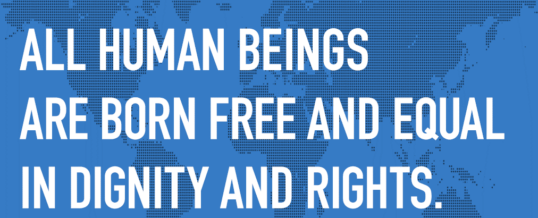
McLeod Group blog by Stéphanie Bacher, January 14, 2020
Global Affairs Canada (GAC) recently held a dialogue on civic space and the environment for civil society in Canada and globally, with a focus on women and marginalized human rights defenders. The meeting’s main purpose was to discuss the implementation of Canada’s Policy for Civil Society Partnerships for International Assistance, which should be released soon. If GAC wants to succeed in building a safe and enabling environment for human rights, it should consider the following advice.
First, Voices at Risk, Canada’s updated guidelines for supporting human rights defenders, must be at the core of its foreign policy and programs. In practical terms, it means that Canada should systematically use a rights-based approach to all its international cooperation and foreign policy decisions, which will require training GAC staff and partners on the ground on what such an approach entails. It also implies that Canadian self-interest must no longer be prioritized at the expense of human rights, as has been the case several times in the past years.
Instead, GAC should “walk the talk” and make human rights a priority for the whole department, from the ministers’ offices down to junior analysts. The Voices at Risk guidelines should be on everyone’s desk and be used by Canadians as an accountability mechanism to evaluate their government’s decisions and actions on international cooperation, as well as, more generally, on Canada’s foreign policy.
The guidelines also address promoting responsible business conduct. Canada cannot continue to allow Canadian extractive companies to commit or be complicit in gross human rights abuses in other countries while GAC staff try to facilitate a safe and enabling environment for human rights defenders abroad. Women and indigenous human rights defenders who fight against mining activity are often the first victims of political violence. Canada’s decision to create a toothless Ombudsperson allows Canadian companies to continue their extractive activities and human rights abuses with impunity. More policy coherence between Canada’s international cooperation, trade and diplomacy efforts is greatly needed.
The third section of the Voices at Risk document presents some guidance on how Canadian diplomatic missions can support human rights defenders. Although embassies should be an important space to gather information on human rights defenders’ environments, they are not always perceived as welcoming to civil society organizations and human rights defenders. In fact, the embassies sometimes prefer to support private Canadian companies.
To understand and mitigate the distinct barriers and risks face by human rights defenders, especially women, youth and LGBT+ people, GAC will need to reassess the nature of its partnerships and the ways it engages. Women, youth and LGBT+ people are often organized in non-traditional ways, such as online or in informal groups and social movements. GAC must therefore learn about the local context through its embassies, diasporic communities, and civil society organizations (traditional NGOs, as well as think tanks and researchers). It should also provide direct funding to Southern organizations to act as intermediaries (see the McLeod Group blog on this topic), which will require adapting GAC’s funding mechanisms.
Global Affairs Canada should also consider who is being left out, as not all human rights defenders have the same capacity to make their work and hence the threats they face known to international organizations and the general public. Identifying human rights defenders who need protection and assistance outside traditional networks and groups might seem a hard task at first, but it is an area where Canada could make a real difference.
Some of these steps may be challenging, but they will help the Canadian government implement GAC’s new Civil Society Partnership Policy and, more broadly, promote a safe and enabling environment for human rights defenders. Courageous individuals around the world are taking great personal risks to promote the rights of marginalized people. They urgently need this support.
